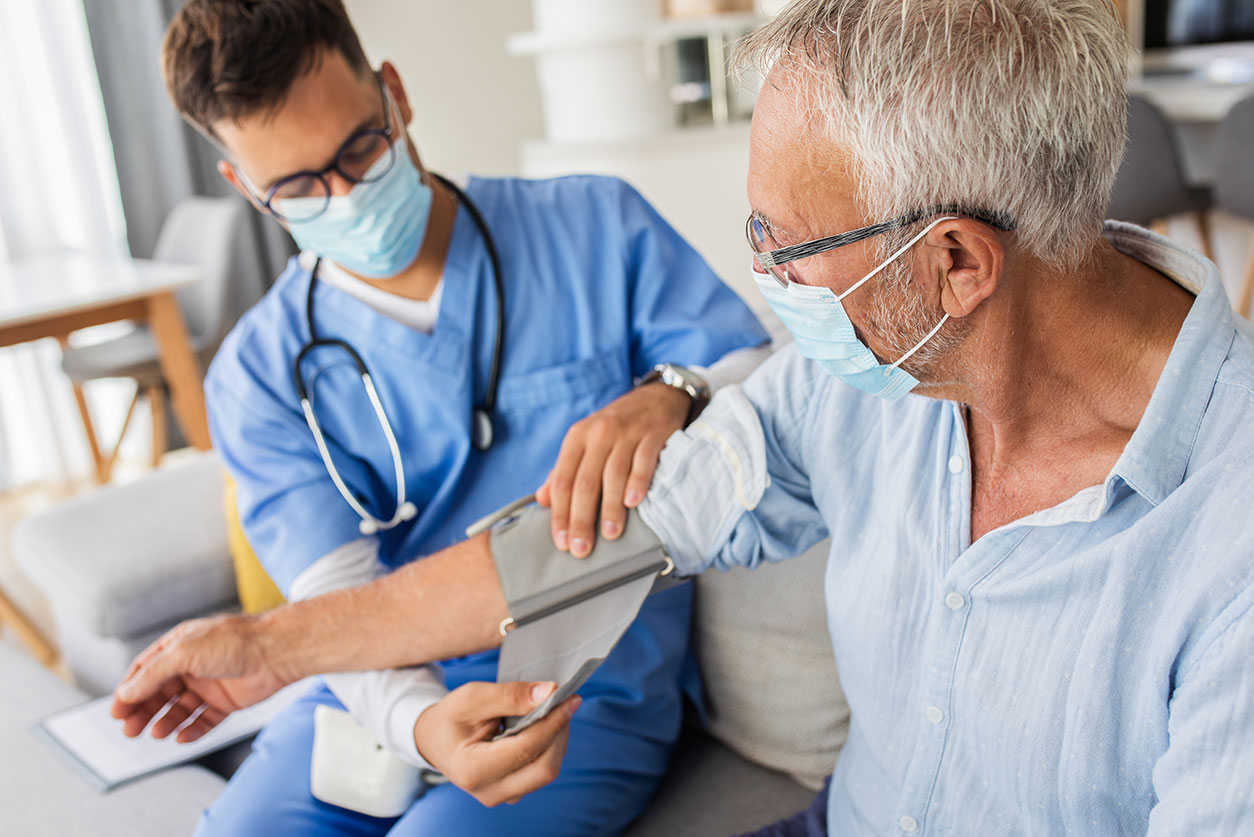According to the Centers for Disease Control and Prevention, approximately one-third of the people who have hypertension are unaware of this underlying medical condition. The symptoms of hypertension are frequently undetected until it leads to other problems. High blood pressure is a silent killer, and it could be quietly causing damage to vital organs of the body like the kidney and heart.
What is High Blood Pressure?
Hypertension is defined as the sustained elevation of resting systolic blood pressure (≥ 130 mm Hg), diastolic blood pressure (≥ 80 mm Hg), or both.
If blood pressure readings are above 120/80 it means that you are at risk of developing hypertension. The range of 120-139 and/or 80-89 is considered as prehypertension; 140–159 and/or 90–99 is stage 1 hypertension; 160–179 and/or 100–110 is stage 2 hypertension.
Risk Factors
There are multiple underlying causes of hypertension. Some of these factors are preventable or curable, while some are not.
The non-preventable factors include genetics, ethnicity, and gender. For instance, a person whose parents both have hypertension is at a higher risk of developing this condition. High blood pressure is more likely and is often more severe in African Americans. Males are more likely to develop hypertension than females, and increased age also plays a major role.
However, there are certainly other factors that can be managed by the patient. These include obesity, excessive alcohol consumption, smoking, a sedentary lifestyle, and high salt intake. Both alcohol consumption and smoking constrict the blood vessels, causing internal blood pressure to rise. Salt is responsible for water retention, which increases the blood volume that flows throughout the body, thus increasing pressure. Obesity increases the surface area over which the blood circulates, exerting more pressure on the heart, thus leading to hypertension.
Symptoms
The symptoms of hypertension vary from person to person and also depend on the severity of the disease. However, some common symptoms seen include:
- Headache
- Fatigue
- Chest pain
- Excessive sweating
- Irregular heartbeat
Other signs and symptoms of hypertension are frequently hard to detect without medical diagnostics. You should always seek emergency medical care if you have any of the severe symptoms listed above that do not abate in the course of a few minutes.
Complications
Severe or prolonged hypertension increases the chances of damage to target organs including kidneys and heart. Hypertension increases the risk of:
- Coronary artery disease
- Stroke
- Kidney failure
Treatment
The first line of treatment for hypertension includes lifestyle changes. Eating a balanced meal, low salt intake, enhancing water consumption, managing stress and anxiety, and exercising regularly help regulate blood pressure.
Apart from these lifestyle changes, many medications are used to treat hypertension, like ACE inhibitors, angiotensin receptor blockers, diuretics, beta-blockers, and calcium channel blockers.
Medical treatment requires continuity of care and close monitoring of blood pressure values over time.
Contact us
In case of urgent medical care assistance, AfterOurs Urgent Care offers immediate telemedicine services, where medical providers are available to offer assistance. Anyone who experiences signs and symptoms requiring urgent medical attention can simply book their appointment with AfterOurs Urgent Care to directly talk to an expert. If your medical issue is not appropriate for telemedicine, we will let you know and refer you to an in-person facility.
When to visit a doctor:
If you have high blood pressure or any hypertension urgency that you think needs immediate medical assistance, it is best to consult with a medical professional.
High blood pressure-related services are available at AfterOurs Urgent Care.

